Ata-ul-Haye Nasir, Al Hakam
Ramadan is a very special month in a Muslim’s life. It is a source of blessings, mercy and forgiveness from God Almighty. The Holy Quran and the Holy Prophet’ssa blessed words and example provide us with ample guidance on how to spend Ramadan to attain those blessings. Moreover, in this era, the Promised Messiahas rejuvenated that example of his Holy Mastersa and his Khulafa also continue to guide and teach the Jamaat as to how they can attain the true blessings of this month.
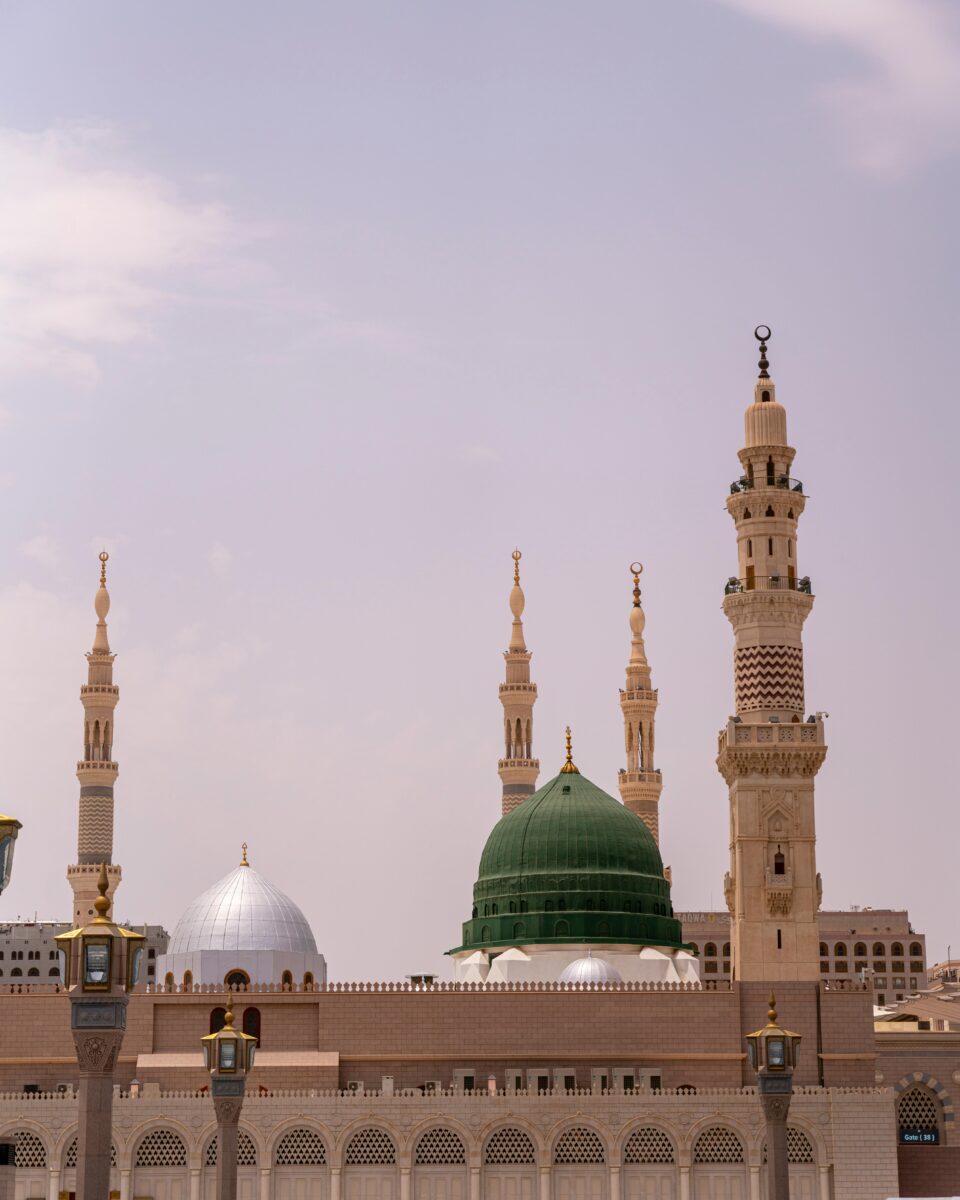
Ramadan and the Holy Prophetsa
Hazrat Ibn Abbasra narrates that the Messengersa of Allah was the most generous of all the people and he used to reach the peak of generosity in the month of Ramadan when Gabrielas would meet him. Gabrielas used to meet him every night of Ramadan to teach him the Quran. Allah’s Messengersa was the most generous person, even more generous than the strong, uncontrollable winds (in readiness and haste to do charitable deeds). (Sahih al-Bukhari, Kitab Bad‘ al-Wahi)
Hazrat Abu Hurairahra narrates:
“I heard the Messengersa of Allah say regarding Ramadan, ‘Whoever prayed at night in it [the month of Ramadan] out of sincere faith and hoping for a reward from Allah, then all his previous sins will be forgiven.’” (Sahih al-Bukhari, Kitab Salat al-Tarawih)
Hazrat Aishara narrates:
“The Holy Prophetsa used to practice e‘tikaf in the last 10 days of Ramadan till he died and then his wives used to practice e‘tikaf after him.” (Sahih al-Bukhari, Kitab al-E‘tikaf)
Ramadan and the Promised Messiahas
On 10 January 1900, during the month of Ramadan, the Promised Messiahas told Hazrat Seth Abdur Rahmanra of Madras:
“During these days, I sit with my friends less than usual and remain in solitude for longer. This is truly for the benefit of my friends. I pray in seclusion with time and freedom, and spend a better part of the night in prayers.” (Malfuzat [English], Vol. 2, p. 185)
Hazrat Dr Mir Muhammad Ismailra narrates that in 1895, he spent the entire month of Ramadan in Qadian and used to offer tahajjud, meaning the tarawih prayers, behind the Promised Messiahas. He added that it was Huzoor’sas routine to offer the witr during the early part of the night and perform eight rak‘aat of tahajjud in a set of two each, during the latter part of the night, in which he used to recite Ayat-ul-Kursi in the first rak‘ah and Surah al-Ikhlas in the second rak‘ah. And during the ruku‘ and sajdah, he would profusely recite:
يَا حَيُّ يَا قَيُّوْمُ بِرَحْمَتِكَ اسْتَغِيْثُ
(Sirat-ul-Mahdi, Vol. 1, p. 295, Narration 320)
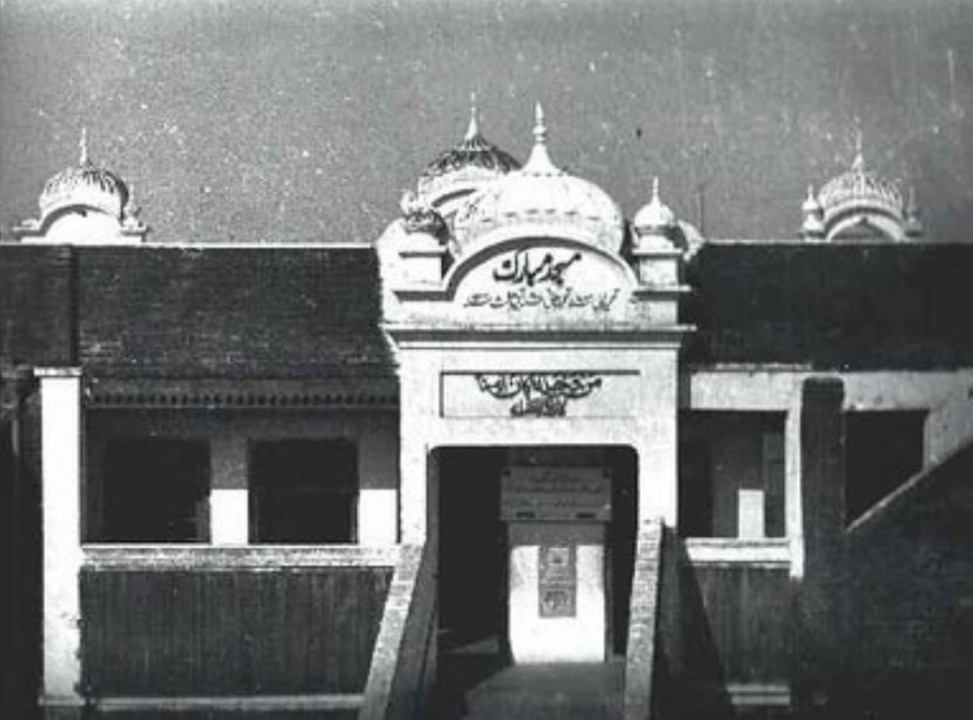
Ramadan and Hazrat Khalifatul Masih Ira
During the first Ramadan of Khilafat-e-Ahmadiyya, tarawih prayers were arranged in Masjid Mubarak, which continued till 20 Ramadan. Hazrat Khalifatul Masih Ira would also participate in it along with other members. Then, on 20 Ramadan, Huzoorra started e‘tikaf in Masjid Mubarak.
Badr wrote that even during this solitude of e‘tikaf, Hazrat Khalifatul Masih I’sra benevolent nature was still showing its wonders, as he delivered duroos of the Holy Quran, expounding on commentaries and answering questions. (Badr, 22 October 1908, p. 8)
In regard to the Ramadan of 1912, Hazrat Mufti Muhammad Sadiqra stated that as the time would come nearer for Hazrat Khalifatul Masih I’sra dars in his house’s courtyard, attendees would be seen coming towards the house of Huzoorra, holding the Holy Quran in their hands, and the courtyard would fill very quickly. Huzoorra would recite half a part (parah) with translation and commentary. He would also answer the questions of the attendees.
After that, women were also taught the Holy Quran inside the house. Then, after the zuhr prayer, everyone would gather in Masjid Aqsa, where Hazrat Khalifatul Masih Ira would come to deliver the dars. (Tarikh-e-Ahmadiyyat, Vol. 3, pp. 603-604)
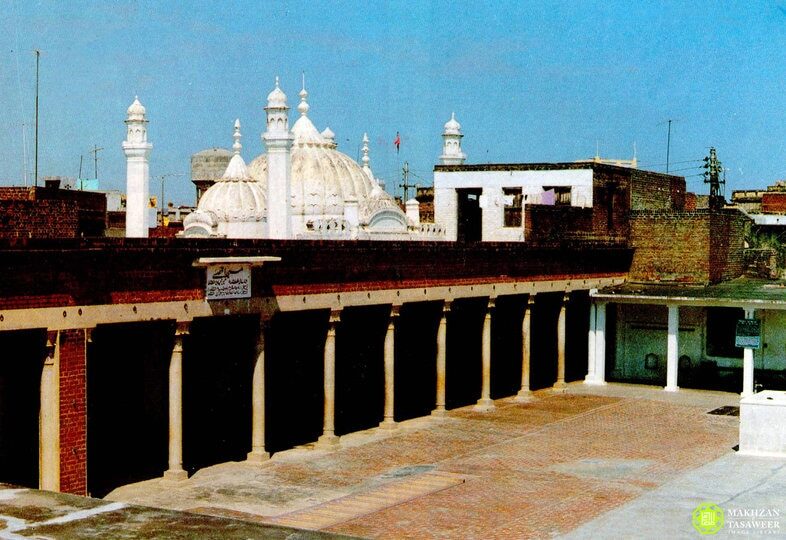
Ramadan and Hazrat Khalifatul Masih IIra
During the time of Hazrat Musleh-e-Maudra, the duroos of the Holy Quran continued according to the same tradition and Huzoorra would prepare his duroos day and night despite many health issues. In this regard, Huzoorra himself expressed in his Friday Sermon of 17 May 1957:
“With age and illnesses, a person’s conditions continue to change as well. I remember in the year 1922, I delivered duroos throughout Ramadan. It was the month of August and the weather was very hot. But I remember writing notes all night and delivering the dars in the morning after keeping the fast. When I would go out in the afternoon, due to extreme heat, Hakim Muhammad Umar Sahib – who is now very old – would fetch water from the well of the mosque and pour it on my head. After that, I would go back and start the dars again. Zuhr would come, asr would come, and the evening would come; I would continue delivering dars. Many a time it would so happen that the time for breaking the fast [iftar] would come while delivering the dars.
“In short, I used to deliver dars for about 12 or 13 hours. The Tafsir-e-Kabir volume, which was published earlier, comprises the notes of those duroos. However, now, due to my illness, my body cannot bear it. Moreover, age is also playing a factor in this.” (Al Fazl, 31 May 1957, p. 3)
Hazrat Khalifatul Masih IIra always called the attention of the Jamaat towards prayers [dua]. For instance, during his Friday Sermon on 11 December 1936 (25 Ramadan al-Mubarak), he drew the attention of the Jamaat towards prayers and suggested the following two prayers for two nights:
The first prayer:
“O Allah, may we become the recipients of your perfect forgiveness, and may we be enabled sincere repentance. May this blessing be granted not only to us, but also to our families, neighbours, friends, loved ones, relatives and to the entire Jamaat. O God, we are your humble, sinful servants; very weak and feeble. We have caused ourselves to be trapped in traps and snares and there is no way out of them. There is no way for us to be saved except that Your perfect forgiveness may surround us and we may be granted such sincere repentance for the future that no disgrace or degeneration comes after it.”
The second prayer:
“O God, You are Perfect, not in need of any praise, honour or fame. You do not need to care whether Your servants believe in You or not. Obeying You will not increase Your Glory, and their disobedience will not diminish Your Glory. O our Lord, although You are not in need, the world needs Your divine light. We ask You to manifest Your attributes to the world. May Your Divine light [nur] spread throughout the world. May all mankind believe in You and may Your kingdom be established in the world. O God, have mercy on the world, not for Yourself, but for Your humble servants. Show them the path that will bring them closer to You – not to express Yourself as being the Creator, but to have compassion and mercy on creation – through which Your kingdom may be established in the world, so that mankind be enlightened by Your Divine light, their hearts be enlightened, their eyes shine, and their minds be sharpened.”
Stating the above-mentioned prayers, Huzoorra instructed members of the Jamaat:
“At least one day of the year, weep before God Almighty over your sins and do not ask Him for anything for [your] pleasure; do not ask him for rupees; do not ask him for money; do not ask him for wealth; do not ask him for health; do not ask Him for debt relief; do not ask Him for honour; do not ask Him for respect.
“Just ask, ‘O God, may we attain Your perfect forgiveness. May we attain complete repentance and forgiveness.’ Ask for this prayer in different manners, ways and words. Seek this for yourselves, your wives, your children, your friends, your neighbours, the people of your city and then for the whole Jamaat. But the subject, manner, rhythm and tone should be the same, and the summary of whatever you say should be that ‘We beseech Your forgiveness from You alone.’ Thus, ask from that Forgiving, Pardoning, Concealing, [and] Compassionate Being. (Al Fazl, 13 December 1936, p. 6)
Ramadan and Hazrat Khalifatul Masih IIIrh
Maulana Abul Ata Sahib, in his article regarding the first Ramadan during the time of Hazrat Khalifatul Masih IIIrh, stated that Masjid Mubarak had its unique glory, where the Khalifa of the time would himself lead the five daily prayers and the spiritual pleasure of those prayers would be extraordinary. (Al Fazl, 22 January 1966, p. 4)
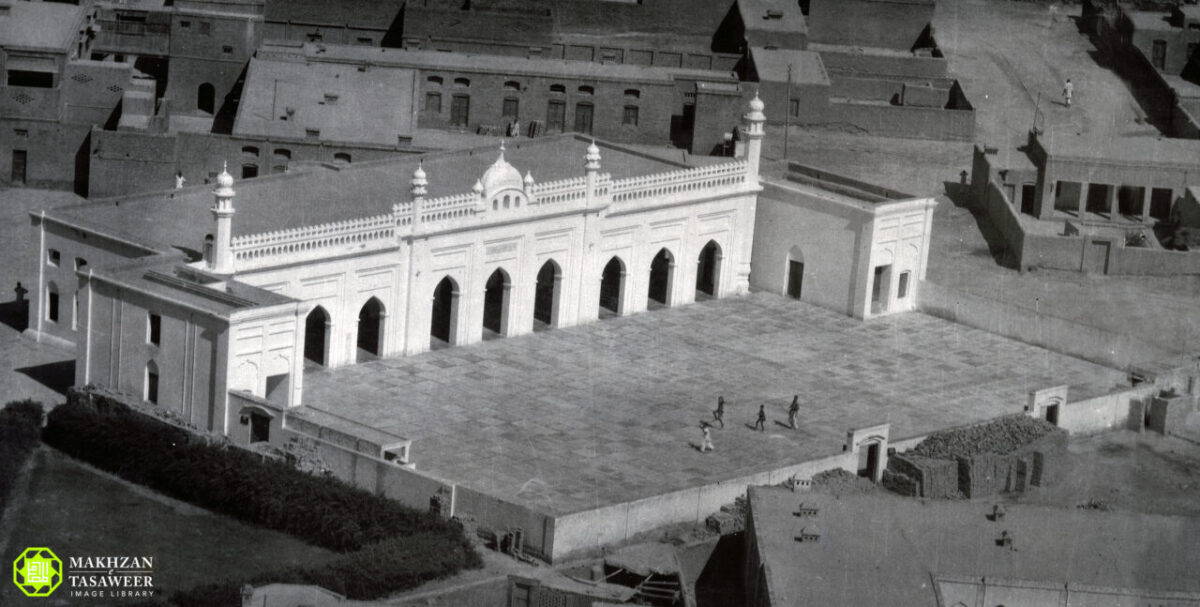
On 22 January 1966 – 29 Ramadan – Hazrat Khalifatul Masih IIIrh delivered a dars on the last three Surahs of the Holy Quran and then led everyone in dua. (Al Fazl, 26 January 1966, p. 8)
During the Ramadan of 1967, from 9 to 11 January, Huzoorrh addressed members of the Jamaat in general and the mu‘takifin specifically at Masjid Mubarak.
On 11 January, after the asr prayer, Huzoorrh delivered a dars on the last three Surahs and led everyone in dua.
Every year, during the month of Ramadan, Huzoorrh would guide and teach the Jamaat regarding Ramadan during his Friday Sermons, to make them realise the importance and blessings of this holy month.
During his Friday Sermon of 22 October 1971, Hazrat Khalifatul Masih IIIrh stated:
“The one benefit of the month of Ramadan and its supplications is that the spiritual faculties of man improve and it creates a curiosity about his Lord. It is very much necessary for man to try, as much as possible, to attain enlightenment about the attributes of his Lord until he realises just how close his Lord is to him […] So, man must understand that Allah the Almighty is very close to him [and] we need Him for everything, even for lifting a finger.” (Khutbat-e-Nasir, Vol. 3, p. 475)
Ramadan and Hazrat Khalifatul Masih IVrh
Hazrat Khalifatul Masih IVrh would also deliver duroos of the Holy Quran during the month of Ramadan and teach the commentary of the Holy Quran. These duroos used to be broadcast live throughout the world via MTA.
Huzoorrh would also guide members of the Jamaat regarding the month of Ramadan during his Friday Sermons, so that they may benefit from this month as much as possible.
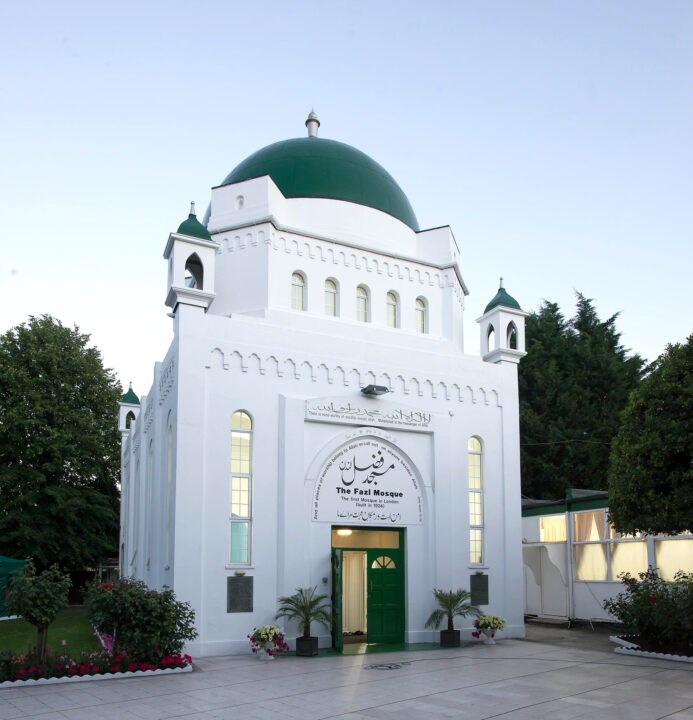
During his Friday Sermon of 15 April 1988, Huzoorrh stated:
“Ramadan bears a great significance. Those who do not fast during Ramadan cannot even imagine what virtues they have remained deprived of. They did not bear the hunger or observe the prohibition of a few days and [thus] were deprived of great blessings and remained chained to worldly affairs even more than before. This is so because one who does not endure the restrictions of Ramadan, his routine is overpowered by worldly affairs, and in fact, he is compelled to bind himself to the bonds of materialism. Such people are gradually enslaved by the lower form of life. After that, even if they want to, they cannot break free from their shackles.” (Khutbat-e-Tahir, Vol. 7, p. 258)
Ramadan and Hazrat Khalifatul Masih Vaa
The Ramadan of 2003 was the first Ramadan of Khilafat-e-Khamisah. Huzooraa delivered a dars on the last three Surahs of the Holy Quran on 25 November 2003 and led everyone in dua. (Al Fazl International, 5 December 2003, p. 16)
Almost every year since then, aside from Friday Sermons detailing spiritual gems for the guidance of Muslims on how to spend the month of Ramadan and other guidance to jamaats around the world on the observance of Ramadan, Hazrat Amirul Momineenaa delivers a dars of the Holy Quran towards the end of Ramadan and teaches the meanings and commentary of the Holy Quran. These duroos are telecast live through MTA. In his Friday Sermons, he guides the Jamaat regarding Ramadan, which instils a great zeal in the hearts of Ahmadis to spend this month according to its true essence.
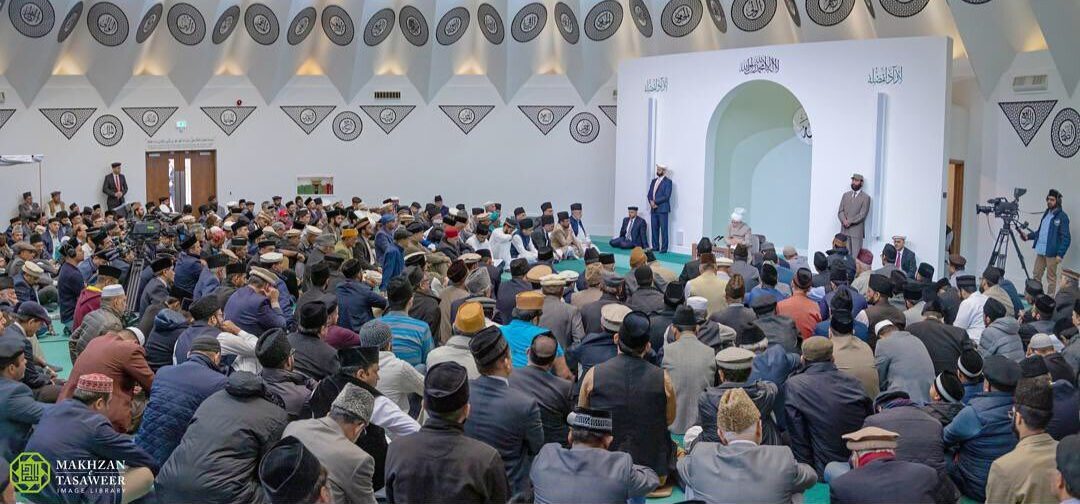
During his Friday Sermon of 24 April 2020, Hazrat Khalifatul Masih Vaa said:
“Allah the Almighty says that the reason why the month of Ramadan has arrived and your attention has been drawn towards fasting is so that you may make up and fulfil any of your shortcomings and weaknesses of the past 11 months. And this is to be done whilst turning your attention purely towards Allah the Almighty, abstaining from even the lawful things purely for His sake, tolerating hunger and thirst for His sake, paying greater attention towards the worship of Allah the Almighty than before and whilst paying particular attention towards fulfilling the rights of His creation.
“When one fulfils these injunctions, this, in essence, is true taqwa and this is the very purpose of Ramadan and fasting. When a person observes the fast and passes through the month of Ramadan with this objective and for this purpose and does so with pure intentions then this will not bring about a temporary transformation, rather it will be a permanent change. Furthermore, one’s attention will constantly be turned towards fulfilling the rights of Allah and towards fulfilling the rights of His worship.
“Such an individual will not be overcome by worldly endeavours and vain pursuits and he will also pay attention towards fulfilling the rights of mankind. Such an individual will not usurp the rights of people for his personal interests. Thus, if we are not entering the month of fasting with this intention and objective then this month of Ramadan will be of no benefit.” (Al Hakam, 22 May 2020, p. 37)

